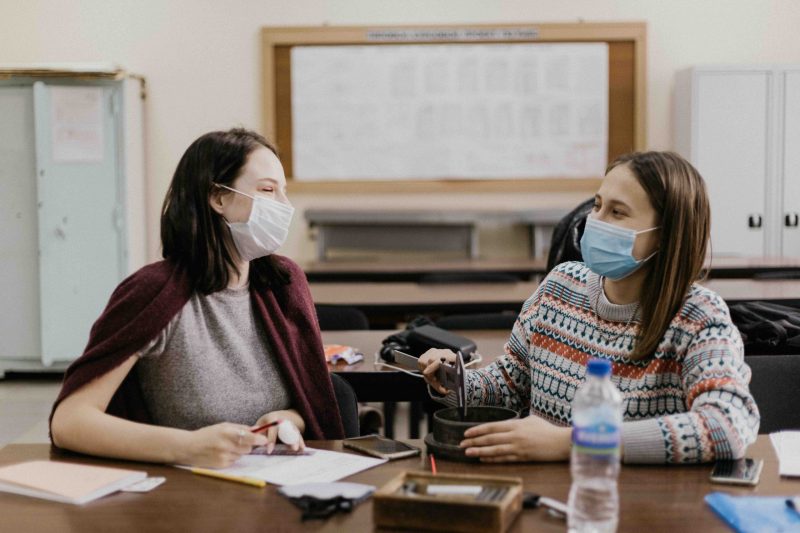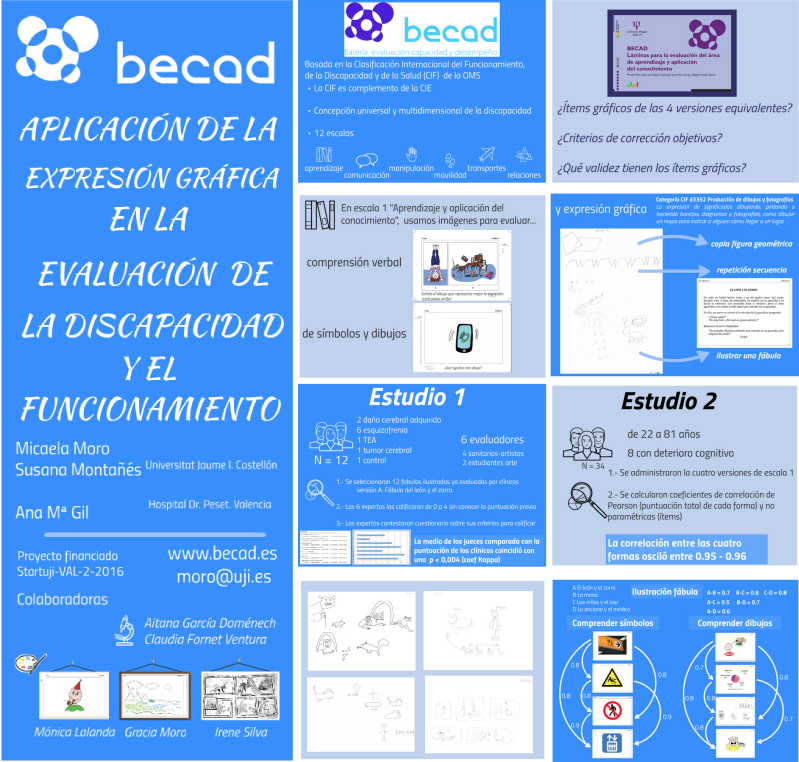Previous and pilot studies
The first studies on the BECAD were carried out with patients with severe mental disorder in a Medium Stay Unit and in Reinsertion and Rehabilitation Resources
In a pilot study with 19 patients with severe mental disorder and 19 controls with no mental health history, the BECAD was found to discriminate as expected between the two groups, especially in the areas of Communication, General Tasks and Demands, Interpersonal Relationships and Main Life Areas.
In addition, significant differences were found within the group of patients between those living independently in the community and those requiring care.
The need for appropriate assessment instruments for interdisciplinary psychosocial rehabilitation programmes was one of the conclusions of a descriptive study on the profile of patients in a medium-stay unit, which included an account of both assessment and intervention protocols.
Application of the WHO International Classification of Disability, Functioning and Health (ICF) for the assessment of disability in patients with severe mental disorder.
Moro Ípola, M; Solano Trullenque, L; Frade García, B, Salazar Fraile, J, Pena Garijo JA and Asuero LLuesma, M (2011). Aplicación de la Clasificación Internacional de la Discapacidad, el Funcionamiento y la Salud (CIF) de la OMS para la evaluación de la discapacidad en pacientes con trastorno mental grave. Norte de Salud Mental, 9 (41), 59-72).
Descriptive study of patients seen at the Mental Health Half-Stay Unit of the Pare Jofré Hospital during the years 2005-2008.
Frades, B, Ruipérez , MA and Moro, M (2011). Descriptive study of patients seen at the Mental Health Half-Stay Unit of the Pare Jofré Hospital during the years 2005-2008.. Rehabilitación Psicosocial 2011; 8 (1 y 2): 23-31

Creating an interview
The administration of the BECAD is complex if the person being assessed is not sufficiently well known. To overcome this difficulty, a semi-structured interview has been developed to obtain all the necessary information. The process of creating the interview was presented at the 1st SEAEP Spring School.
Gil Palmero, Ana María and Moro Ípola, Micaela (mayo, 2018). Development of a semi-structured interview for the assessment of activities of daily living. Communication presented at the 1st SEAEP Spring School. Málaga (Spain),
With a larger sample of 116 participants (34 with acquired brain injury, 38 with severe mental disorder and 44 controls without chronic illness or recognised disability) exploratory factor analyses were performed on three scales: ‘Learning and application of knowledge’, ‘Self-care’ and ‘Mobility’.
With the paper by Moro and Mezquita (2013): Development and validation of the BECAD, an assessment tool based on the International Classification of Functioning, Disability and Health. Rev. Esp. Salud Publica, 87, 11-24, the study on the structure and construct validity of the battery was started. Some changes were introduced regarding the location of some activities in the ICF.

Thus, for example, ‘d5404 Choosing appropriate clothing’, which in the ICF is part of Chapter 5 ‘Self-care’, in the BECAD is part of ‘General tasks and demands’, together with other activities involving decision-making and judgement.
This phase also introduced activities that did not appear as such in the ICF, such as ‘making the bed’ and unfolded others, such as putting on and taking off clothes (upper and lower body).
Parallel forms

The Learning and Knowledge Application scale has four parallel forms, to allow for repeated application in rehabilitation processes over a long period of time.
The reliability between the four forms was presented at the 1st SEAEP Spring School:
Montañés Martí, S, García Domínguez, A and Moro Ípola, M. Parallel forms in the BECAD Learning scale and application of knowledge. Communication presented at the I SEAEP Spring School. Málaga.
Also in this first scale there are several items that require comprehension of images and graphic expression (copying geometric figures, reproduction of patterns and representation of a story).
Two aspects of reliability have been studied. Firstly, the equivalence between the four forms and secondly, the objectivity in the correctness or inter-rater reliability.
Moro, Micaela and Montañés, Susana (noviembre, 2018). BECAD. Application of graphic expression in the assessment of disability and functioning. Communication presented at the I National Congress of Graphic Medicine. Zaragoza.


